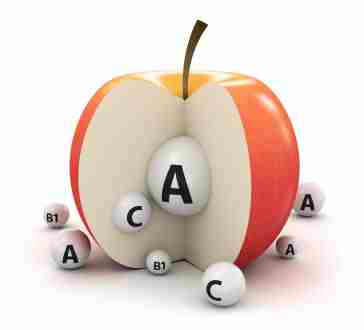Posted by on 3rd Sep 2014
How Do You Know if You’re Deficient in Vitamin A/B/C/D?

Our bodies require an array of vitamins in order to properly function and support our metabolisms, energy levels, muscle repair/growth, skeletal structures and so on. The term “vitamin” actually refers to a range of different micro-nutrients that all have separate roles in our body. A vitamin is something that cannot be made naturally by our own bodies, which is the reason we must get them from outside sources, like the foods we choose to eat.
First off, its’ good to know that there are two types of vitamins: fat soluble and water soluble.
Fat soluble vitamins include Vitamins A, D, E and K; these are able to be stored in our lipids (fats) in large amounts, so it’s not as necessary to get these through food on a daily basis. These also cannot be excreted through urination, so its trouble when someone consumes too much too quickly.
Water soluble vitamins include Vitamin C, the B Vitamins, Folate, and Biotin. This type can be removed from the body more easily, so it’s more important to consume them more often.
Let’s talk about deficiencies in the fat soluble vitamins that we are going to cover first- Vitamin A & Vitamin D:
- Vitamin A - benefits parts of the body including vision, hair, reproductive organs, disease prevention, and bone health.
Symptoms you may be deficient include eye disorders, skin dryness or irritation, yeast infections in women,
- Vitamin D - benefits parts of the body including bones, mood, energy levels, brain function, and heart health.
Symptoms you may be deficient include brittle bones and weakness, fractures, tooth decay, changes in mood, depression, anxiety, low energy levels.

Now let’s talk about deficiencies in the water soluble vitamins that we are going to cover first- Vitamin C & the B Vitamins:
- Vitamin C - benefits parts of the body including immunity function, bone health, skin health, hair health, mouth and teeth health
Symptoms you may be deficient include being low in iron and tired, hair loss, skin irritation and dryness, constantly getting sick, bone fractures, and more.
- The B Vitamins - benefits to the body include metabolism health, ability to digest fats/carbs/proteins properly, energy levels, mood, brain health, digestive health, reproductive health, immunity, and more
Symptoms of deficiency depend on the type if B vitamin you are lacking. They can range from low energy/fatigue, reproductive problems, respiratory issues, low immunity, irritated skin and eyes, and more.
If you are feeling a bit “off” and know that your diet could use improvement, you can take a two prong approach to restoring your health: increase the amount of fresh produce (fruits and vegetables) in your diet while also cutting down on processed/packaged foods, and at the same time take a good quality supplement like the ones found here that will ensure you cover your needs.
It can be difficult to self-diagnose which vitamin you’re lacking since many symptoms overlap, so the best way to find out if to have a blood test done.
Life & Food offers an essential multivitamin for women's daily needs. See it here.
